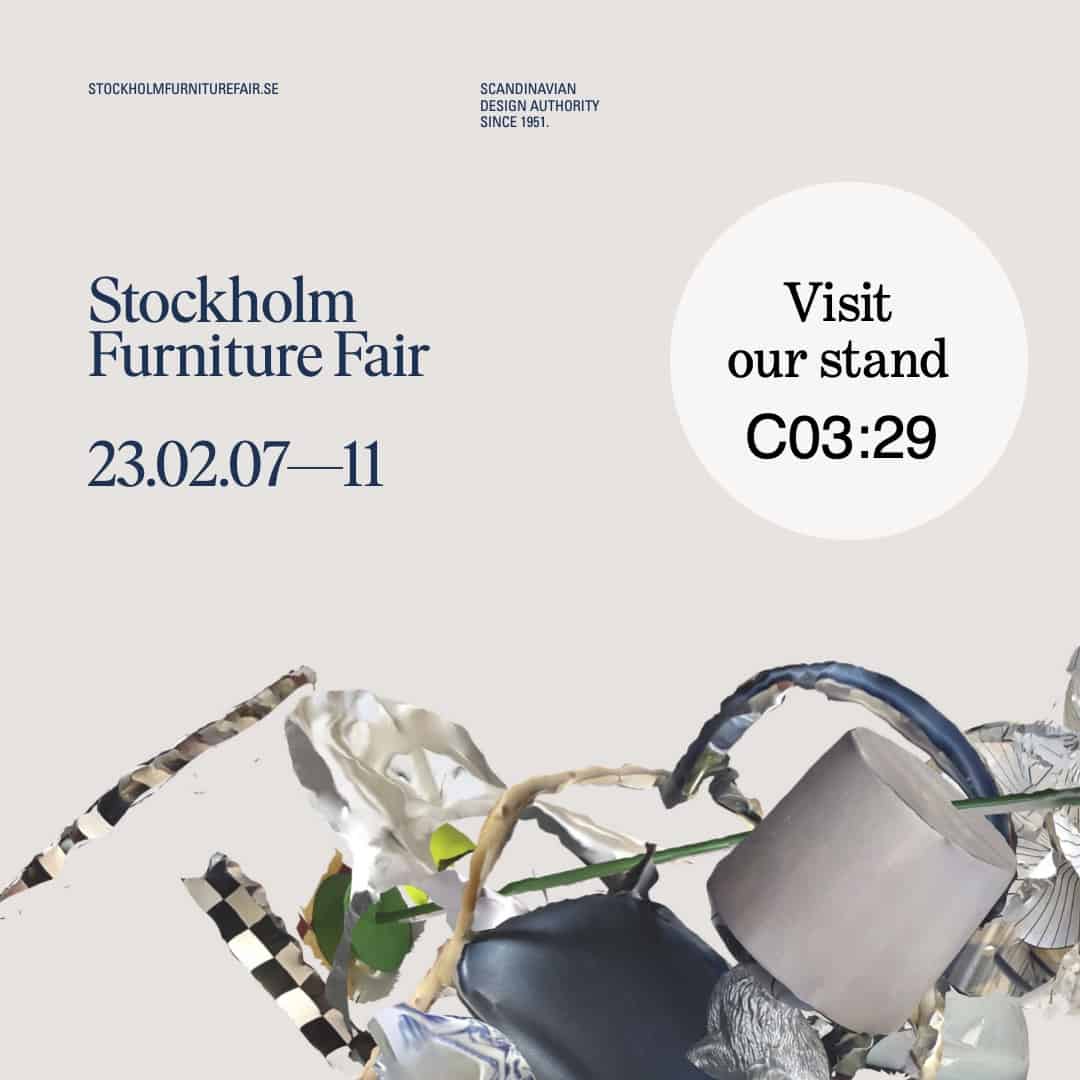On the 7th – 11th of February, InoAcademy will be exhibiting at Stockholm Furniture Fair.
As a part of the commercialisation process InoAcademy researchers Gaudutė Žilytė, Inga Valentinienė and Viktorija Balčiūnaitė will represent their products: Interactive space for children with various neurotypes KUKUBU, seating eco-furniture design elements from fibrous plants, fibrous plant panels and methods to obtain them, biodegradable milk-protein based solid material.
Stockholm Furniture Fair is a part of Stockholm Design Week. Every year it receives around 40 000 visitors from 100 countries. InoAcademy exposition will take place at the Greenhouse venue alongside other selected young designers and design schools.
Gaudutė Žilytė
KUKUBU
When implementing policies for inclusive education and employment of autistic people, it is important to reevaluate the environment and the interaction between different neurotypes. The KUKUBU project has a goal to understand the autism spectrum disorder (ASD), the worldview and perspective of an autistic person. It is done through observation and interviews of individuals, as well as virtual communities of autistic people. After formulating good design criteria and taking into account the characteristics of an autistic person’s thinking, communication, and sensory systems, the KUKUBU space was designed to communicate and rest, introducing neurotypical children to the world of their neurodiverse peers. The KUKUBU space could become a bridge establishing contact with an autistic child. The KUKUBU prototype consists of wooden cubes covered with elastic fabric, designed to hide or connect into closed structures for communication — not through verbal or body language, but through shared sensory experiences.

Viktorija Balčiūnaitė
Biodegradable Milk-protein Based Solid Biomaterial
Overconsumption and the still existing linear economic principle led to the research and development of this eco-themed project. Based on the prevailing principle of the linear economy (take-make-dispose), furniture is made from cheap synthetic, environmentally harmful materials. MDF, MDP, LMDP, FMDP panels, mostly used in the furniture industry, are made from wood waste or wood fibers, which are glued with synthetic resins using pressure and heat.
An experimental lab study found that milk is the most suitable product for developing biomaterial due to its physical properties. That way, the waste of food would be avoided and a completely new product created using milk that is no longer suitable for consumption.
This new biomaterial promises a possibility to use surplus dairy products for the production of alternative materials and their successful integration into furniture design solutions. Milk-based biomaterial can be used as a coating for chipboard and other panels. And by using agricultural materials, it can also be used as a binding material in the production of panels.

Inga Valentinienė
Fibrous plant panels and methods to obtain them
These panels are made of ecologically produced, easily recycled, self-degrading materials for the furniture industry. Their use makes it possible to produce ecological, sustainable and high-quality furniture and to raise the reputation of a sustainable company participating in the circular economy.
As the deforestation concerns increase and requirements for carbon emission become stricter, effectively banning plastics, alternatives made from renewable raw or recycled materials become more and more popular. These panels are made from the stem part of fibrous plants (stalks and fibers), which is not yet widely used, because much of the stems are burned as fuel or buried in the ground.
The panels are made via the process of hot pressing of a mixture of plant fibers and woody particles. Natural, locally-sourced materials are used, such as hemp (Cannabis sativa), flax (Linum usitatissimum L.) and nettle (Urtica dioica L.).
Small fibrous plants have the ability to self-glue with cellulose, a process which is enhanced by special technological processing. The final product is completely ecologically clean, local natural resources are used, and wood is preserved. The material is suitable for mass production.

Inga Valentinienė
Seating eco-furniture design elements from fibrous plants
This product is completely natural and sustainable, made from naturally biodegradable materials and renewable sources, easily recycled. It respects the principles of a sustainable economy, solves the problem of furniture disposal, helps stop negative ecological factors, and contributes to the promotion and implementation of sustainability policy in Lithuania and Europe.
The product respects nature and environment, and uses raw materials of Lithuanian origin. This guarantees the user’s emotional satisfaction. We use locally-sourced fibrous plants such as hemp (Cannabis sativa), flax (Linum usitatissimum L.) and nettle (Urtica dioica L.).
For the biomass of plant fibers and woody particles only biological binders and molding technologies are used, employing the ability of fibrous plants to stick together with cellulose bonds.


